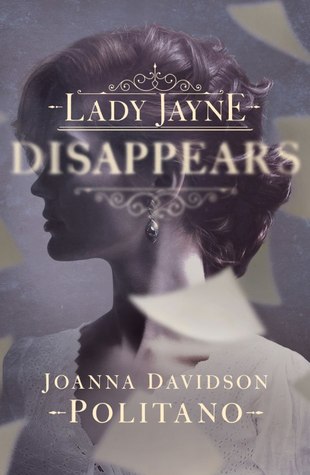 |
Lady Jayne Disappears
by Joanna Davidson Politano ISBN-13: 9780800728755 Paperback: 411 pages Publisher: Revell Released: Oct. 3, 2017 |
Source: ebook review copy from the publisher through NetGalley.
Book Description, Modified from NetGalley:
When Aurelie Harcourt's father dies in debtor's prison, all he leaves her is his famous pen name, Nathaniel Droll. His wealthy sister gives her a home the moment she learns about her existence, but her daughter greets her with resentment. Only the quiet houseguest, Silas Rotherham, and her aunt's granddaughter welcomes her company.
Aurelie decides to complete her father's unfinished serial novel while searching for the truth about the disappearance of Lady Jayne, her mother. She deals with her anger at how the family treats her by writing the family into the story as unflattering characters. But this soon makes it difficult to keep her identity as Nathaniel Droll hidden.
My Review:
Lady Jayne Disappears is Christian romance set in 1861 in England. The book was mostly about Aurelie learning to write stories. She did little investigation into her mother's disappearance, generally content with her own explanations. The moment she met a person, she'd write a fictional story for them, not bothering to learn the truth until reality forced her to change her opinion.
I liked Silas, who was kind and thoughtful. Aurelie seemed an unintentional contradiction, though. She grew up among prisoners, which allows her to write realistic characters. Yet she usually acted like she grew up completely sheltered from the real world. She's very trusting, idealistic, and sweet. She easily overlooked sin in practically everyone but was very judgmental of her own relatives.
Unfortunately, the story wasn't very realistic or historically accurate. Some errors were little details, like the description of the whist game didn't sound like how whist was actually played. Or inconsistencies, like how Silas was surprised that the jail-keeper didn't fed the prisoners free meat each day. Silas was poor once and should have known that the poor could rarely afford meat. He also wouldn't have expected the jail-keeper to spend his own money to provide it. Many details about debtor's prison were portrayed in a misleading or inaccurate way. For example, Aurelie stated that the debtors weren't allowed to work (except her father). In real life, debtors could work within the prison to earn money, some debtor's were allowed to leave during the day to work, and family members could work. The author also gave the heroine and hero modern views and sometimes characters used modern phrases.
Aurelie was a strong Christian who meditated on verses and frequently prayed for people. There was no sex or bad language. Overall, I enjoyed the characters, but many holes in the story were never explained and errors and inconsistencies kept jerking me out of the story.
If you've read this book, what do you think about it? I'd be honored if you wrote your own opinion of the book in the comments.
Excerpt: Read an excerpt using Google Preview.





No comments:
Post a Comment